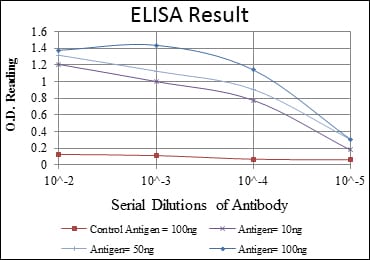
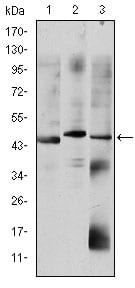
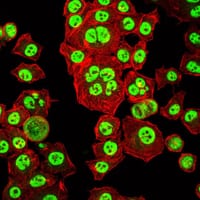
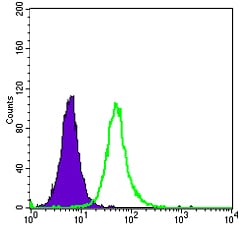
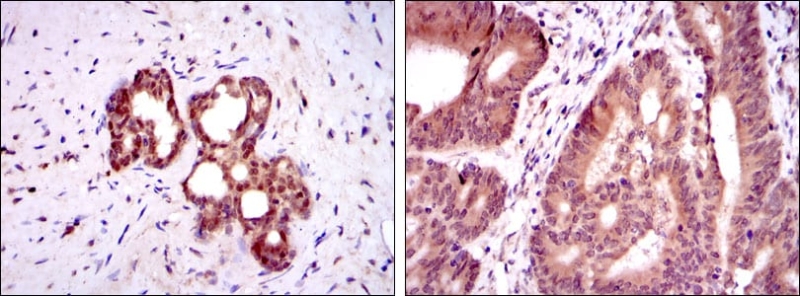
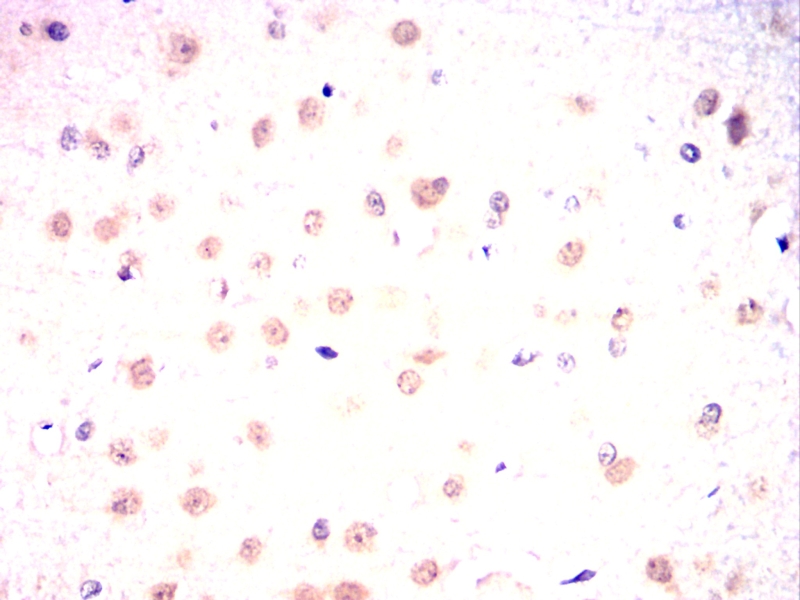
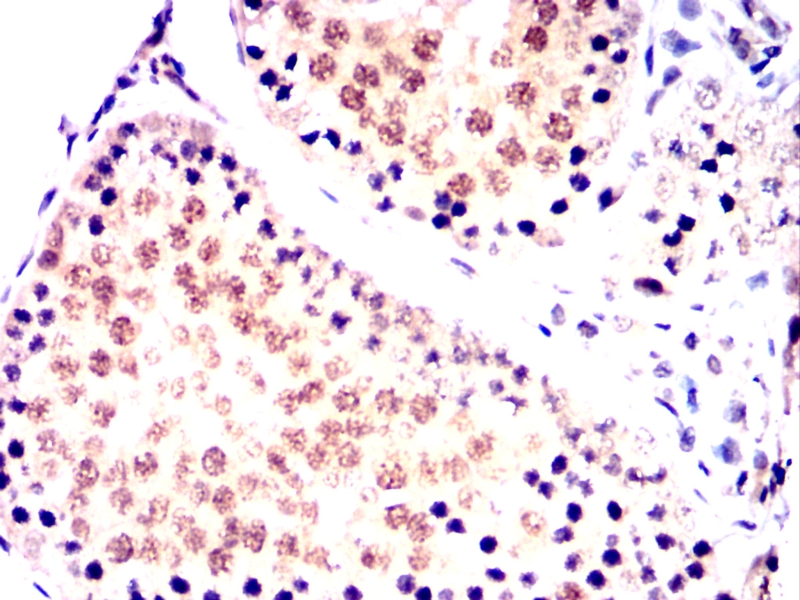
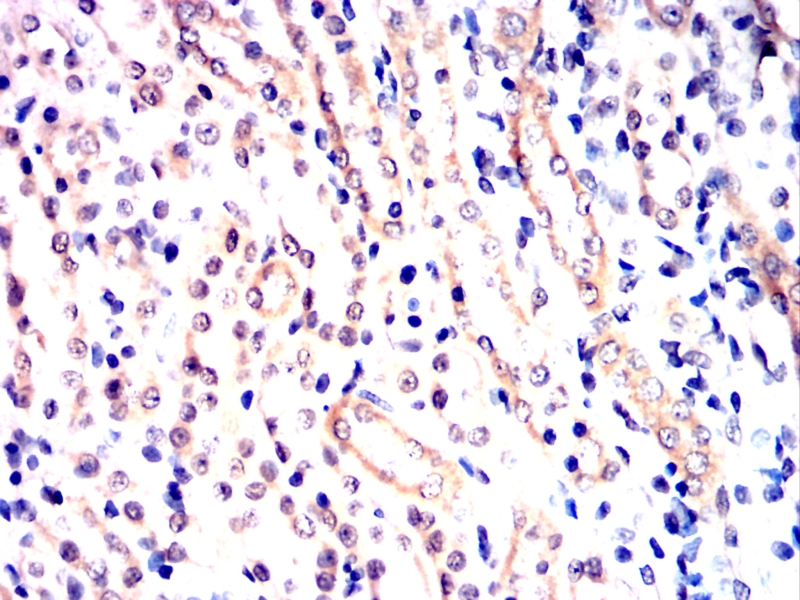
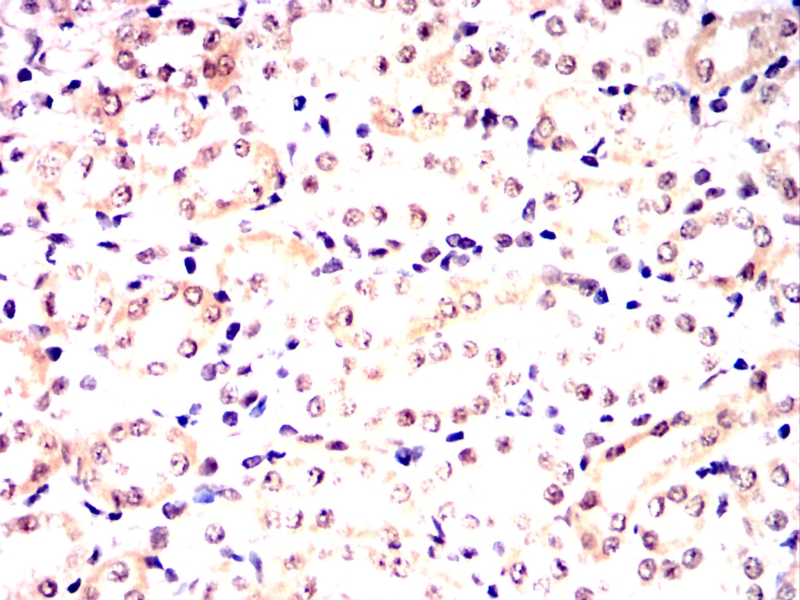
| WB | 1/500 - 1/2000 | Human,Mouse,Rat |
| IF | 咨询技术 | Human,Mouse,Rat |
| IHC | 1/200 - 1/1000 | Human,Mouse,Rat |
| ICC | 1/200 - 1/1000 | Human,Mouse,Rat |
| FCM | 1/200 - 1/400 | Human,Mouse,Rat |
| Elisa | 1/10000 | Human,Mouse,Rat |
| Aliases | MCOPS5; MGC45000 |
| Entrez GeneID | 5015 |
| clone | 1H12C4B5 |
| WB Predicted band size | 32kDa |
| Host/Isotype | Mouse IgG1 |
| Antibody Type | Primary antibody |
| Storage | Store at 4°C short term. Aliquot and store at -20°C long term. Avoid freeze/thaw cycles. |
| Species Reactivity | Human,Mouse,Rat,Rabbit,Monkey |
| Immunogen | Purified recombinant fragment of human OTX2 expressed in E. Coli. |
| Formulation | Purified antibody in PBS with 0.05% sodium azide. |
+ +
以下是关于GPR83抗体的3篇参考文献及其简要摘要内容:
---
1. **文献名称**: *GPR83 Expression and Function in the Central Nervous System*
**作者**: Smith J, et al.
**摘要**: 该研究利用特异性GPR83抗体检测了该受体在小鼠脑组织中的分布,发现其在丘脑和下丘脑区域高表达,提示其可能参与调节神经内分泌功能及应激反应。
---
2. **文献名称**: *Targeting the Orphan Receptor GPR83 with Monoclonal Antibodies for Cancer Immunotherapy*
**作者**: Lee C, et al.
**摘要**: 研究团队开发了针对GPR83的单克隆抗体,并在体外实验中证明其能特异性结合GPR83.抑制肿瘤细胞增殖,为开发基于GPR83靶点的免疫疗法提供了实验依据。
---
3. **文献名称**: *GPR83 Antibody Reveals Its Role in Regulating Energy Homeostasis*
**作者**: Zhang R, et al.
**摘要**: 通过GPR83抗体标记,研究发现该受体在肥胖模型小鼠的脂肪组织中表达异常,进一步实验表明GPR83可能通过调控AMPK通路影响能量代谢,为肥胖治疗提供了新靶点。
---
注:以上文献信息为模拟示例,实际引用时需核对真实数据库(如PubMed、Web of Science)中的具体文献。
GPR83 (G Protein-Coupled Receptor 83) is an orphan receptor belonging to the class A G protein-coupled receptor (GPCR) family. It is primarily expressed in the central nervous system, particularly in regions like the hypothalamus, amygdala, and hippocampus, suggesting roles in neuroendocrine regulation, stress response, and emotional behavior. GPR83 is also detected in peripheral tissues, including immune cells, though its physiological ligands and precise signaling mechanisms remain poorly characterized. Studies link it to interactions with neuropeptides like proadrenomedullin N-terminal peptide (PAMP) and hint at its involvement in energy homeostasis, appetite regulation, and immune modulation. Alternative splicing generates isoforms such as GPR83-2. which may exhibit distinct functional properties.
GPR83 antibodies are essential tools for studying receptor expression, localization, and function. Polyclonal or monoclonal antibodies targeting extracellular or intracellular epitopes enable techniques like Western blotting, immunohistochemistry, and flow cytometry. These reagents help validate GPR83 expression in specific cell types or tissues, assess its regulation under physiological or pathological conditions (e.g., obesity, mood disorders), and explore its interactions with potential ligands or downstream signaling partners. Challenges include cross-reactivity with related GPCRs and limited validation in knockout models. Despite its orphan status, GPR83 remains a target of interest for drug discovery, particularly in metabolic and neurological disorders, driving continued demand for reliable antibodies to unravel its biological significance.
×